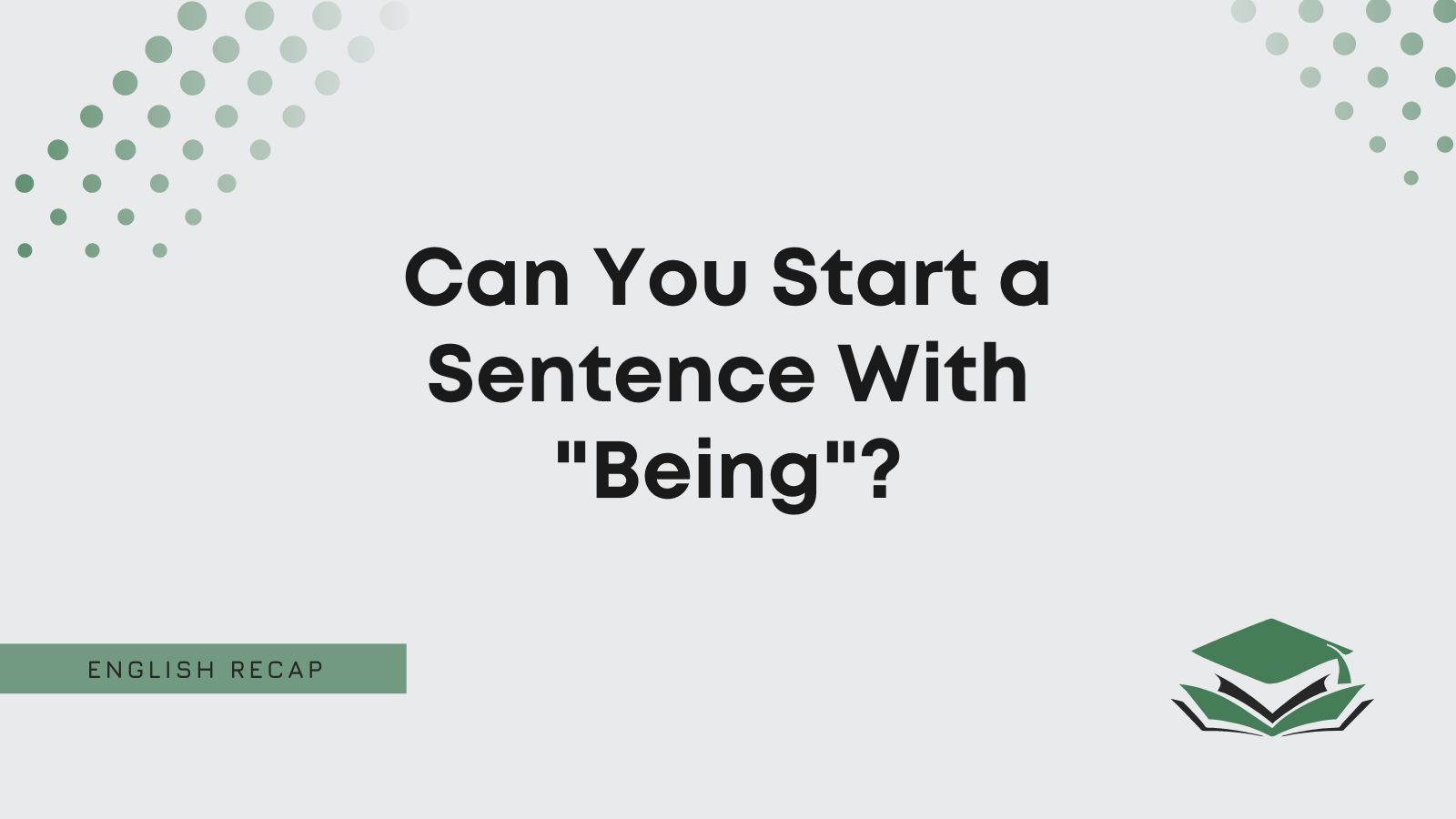It is correct to start a sentence with “being” in both informal and formal writing. The word “being” at the beginning of a sentence is the present participle of the verb “be.” It is uncommon to begin a sentence with the noun form of “being.”
When you begin a sentence with the verb “being,” you usually refer to what something is or to a particular state of “being.”
- Being a police officer is a stressful job.
- Being rich isn’t the key to happiness.
The term “being” often relates to people but can also relate to other things, such as times or states.
Also, when you add the word “that” after “being,” you create a dependent clause for which you need to put a comma afterward.
- Being that it is Sunday, we should relax.
- Being that she is an expert, she does not need advice.
Although it is not common to use “being” as a noun at the start of a sentence, sometimes it is possible if you modify it to “beings.”
- Beings from another planet will contact us one day.
If you are still unsure how to use “being” at the start of a sentence, please keep reading to discover more and see formal and informal examples. We’ll also show you what you can use instead of “being” at the beginning of a sentence.
Can You Start a Sentence With “Being” in Formal Writing?
Beginning a sentence with “being” in academic or formal writing is correct. When you use “being” to begin a sentence, you refer to “how, who, or what” something is.
- Being critical of everyone is not a good management style.
- Being a tree surgeon is a dangerous profession.
However, when you add the word “that,” the clause becomes dependent. The meaning also becomes similar to the terms “because” or “since.”
- Being that we performed well in quarter one, we are expanding the business.
There is nothing wrong with starting a sentence with “being.“ However, if you would prefer to use an alternative synonym, some options include:
- Considering
- Occurring
- Remaining
Can You Start a Sentence With “Being” in Informal Writing?
It is correct to begin sentences with “being” in informal writing and messaging. Of course, in highly casual messaging, it is not massively common to start sentences with “being,” but it is correct, nonetheless.
- Being you is easy. You don’t have to work for anything.
- Being late for our date is not acceptable.
Another way you can use “being” at the start of a sentence is as “being able” to indicate “ability.”
- Being able to speak English is helpful when you are abroad.
In informal English, “being” is often changed to become “being that,” which means “since” or “because.”
- Being that you asked nicely, I will lend you the car.

